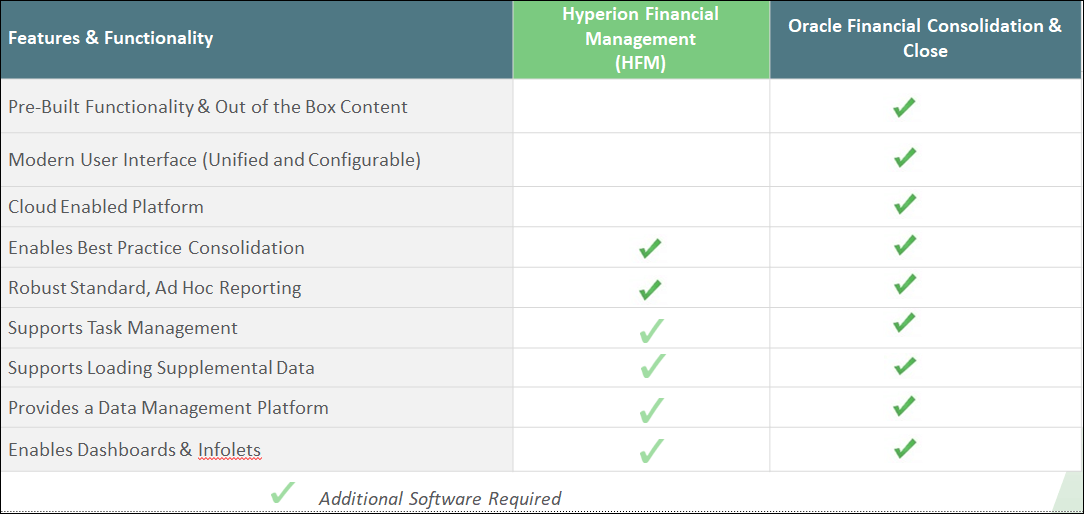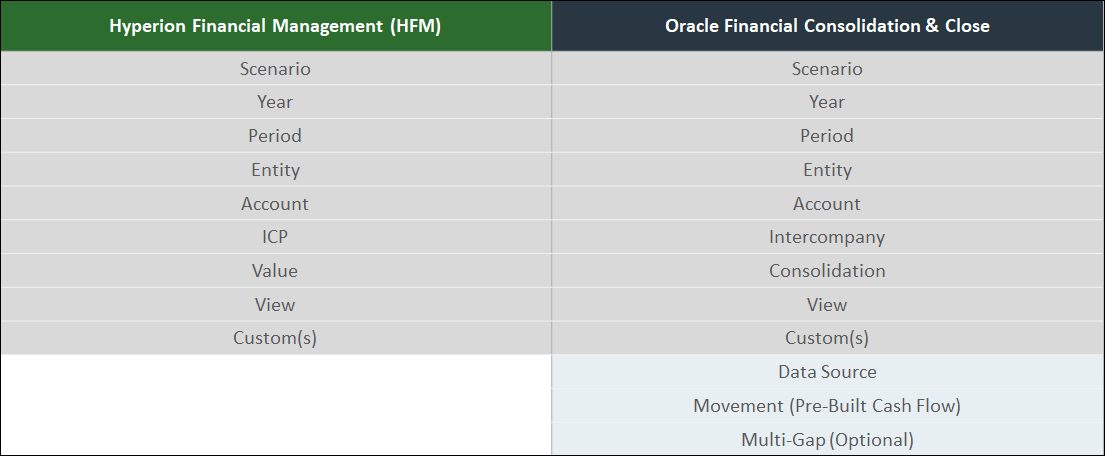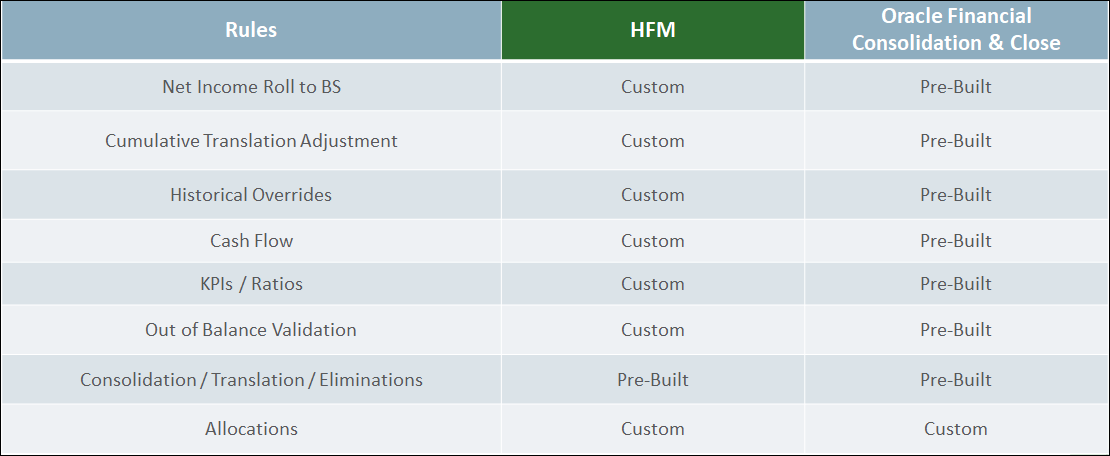Oracle Hyperion Financial Management (HFM)
Oracle Hyperion Financial Management is a comprehensive, Web-based application that delivers global financial consolidation, reporting, and analysis in a single, highly scalable software solution. Oracle HFM utilizes today’s most advanced technology, yet is built to be owned and maintained by the enterprise’s finance team.
Oracle Financial Consolidation and Close Service (FCCS)
Oracle Financial Consolidation and Close Service is a business process available in the Oracle EPM Cloud for managing the end-to-end consolidation and close. No matter the size of your organization, Oracle FCCS helps ensure that financial close processes are accurate, timely, compliant, and auditable.
Benefits of Financial Close in the Cloud
Finance leaders are striving to reduce business complexity and improve employee productivity through process standardization and automation. But the geographic diversity, strict timelines, and the complexity of the financial close process present unique challenges and risks.
Cloud-based solutions offer many advantages to streamline your financial close:
- A unified view of the close process
- Improved collaboration among key stakeholders
- Eliminate spreadsheets and manual tasks with automated workflows
- Self-service capabilities result in greater levels of user engagement
Why Move from Oracle HFM To FCCS?
The following HFM capabilities are now included in Oracle FCCS:
- Currency Translation Adjustment
- Copy & Clear
- Movement enhancement for Balance Sheet Accounts
- Configurable Calculations & Translations
- Advanced Consolidations
- Ownership Management
- Journals – Auto reversing, Attachments, Recurring, Templates
- Configurable Consolidation Rules
- Extended Dimensionality
- Process Management
- Equity Pickup
HFM vs. Oracle EPM Cloud Comparison of Features and Functionality:

HFM vs. EPM Cloud: Dimensionality

“Configurable” Logic

For users of older versions of on-premises Hyperion Financial Management (HFM), the Financial Consolidation and Close capability in Oracle EPM Cloud presents an opportunity to move to the cloud. Many existing features and conventions (intercompany matching and reporting, translation and consolidations, calculation status, and locking) have been carried over from the on-premises version, with some new features added to address modern financial close challenges. New features such as automatic cash flow reporting at every level, data source tracking, and fully integrated intelligent process automation all replace custom solutions in HFM applications. Oracle FCCS delivers many out-of-the-box features and best practices that simply need to be enabled in your application without any customization. All these additional features along with a simple and user-friendly interface make it a compelling replacement for Oracle HFM.
Oracle HFM vs FCCS – Migration Considerations
Before you decide to migrate from Oracle HFM to Oracle FCCS, there are a number of considerations that you should evaluate:
Optimize Your Financial Close Processes
Over time, many existing HFM applications have undergone great expansion and change. This growth often results in unnecessary complexity in both architecture and usability. Moving to the cloud can be a good time to simplify your application architecture and apply best practices to your processes. Oracle FCCS also provides a more modern interface and simpler workflows that can enhance both user experience and productivity.
Enable On-Premises and Cloud Coexistence
Cloud-based applications offer greater flexibility to support rapid business expansion and can help you respond faster to changing business needs and environments. A merger or acquisition can create unnecessary complexity by forcing a potential redesign and rollout of the on-premise Oracle HFM application, whereas you can simply deploy Oracle FCCS and integrate the new entity effectively with your existing systems and processes.
Include Supplementary Data
Financial reporting regulations are continuously expanding include more in-depth information. The latest changes in IFRS 16 and 17 require more data from finance departments to comply with regulations. Oracle FCCS can store large volumes of supplementary data, including transactional data that can be used in the future for management reporting, statutory compliance, or other in-depth analysis.
Manage and Automate your Close
The financial close process is continuously growing in complexity and at the same time, the management wants it to be done faster. Oracle FCCS can automate your entire financial close process – from closing out sub ledgers to publishing reports, through intelligent process automation (IPA). IPA automates the manual processes and helps streamline your close by reducing wait time, loading and mapping data, and running consolidations. You can improve collaboration by automatically notifying users when their assistance is needed, and various other workflows are available for each task. The IPA capability can be applied across the entire Oracle EPM Cloud portfolio – not only financial close but also in your planning and forecasting processes.
Leverage Best Practices
Oracle, in consultation with their customers and partners, has developed and defined a set of best practices for leveraging their financial close solutions, depending on the customer’s requirements. Oracle FCCS incorporates these best practices into the solution as out-of-the-box functionality so that you can simply enable and configure the functionality to suit your needs, without the need for complex customizations. This can save the time, cost, and effort required for implementation and maintenance and allow you to adapt quickly to any business changes we will have a library of best practices waiting for you to implement when the time comes.
Existing Hyperion customers have two choices – they can either upgrade to the latest on-premise version Oracle EPM 11.2 with premium support through 2030 or migrate to Oracle EPM Cloud.
Read this ebook to find out which option is right for you:




